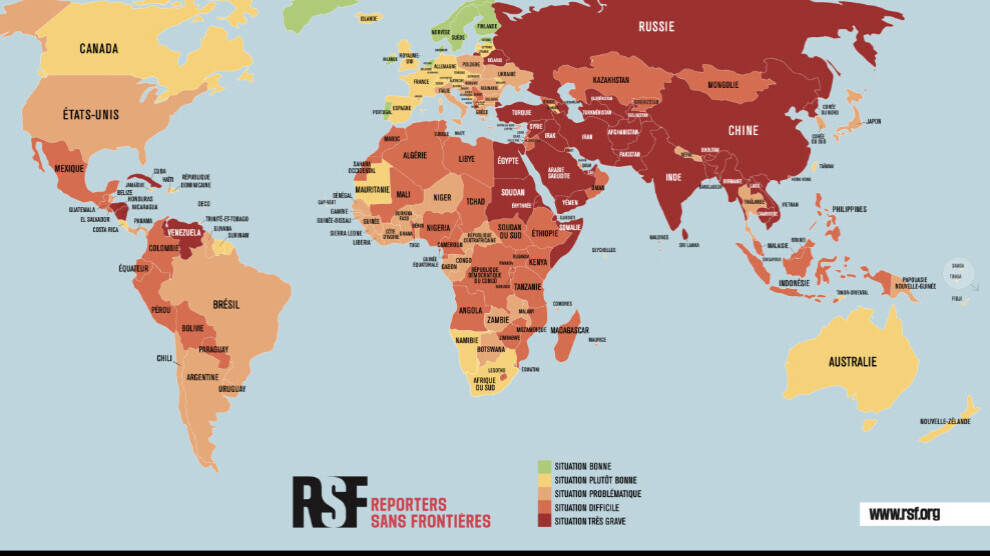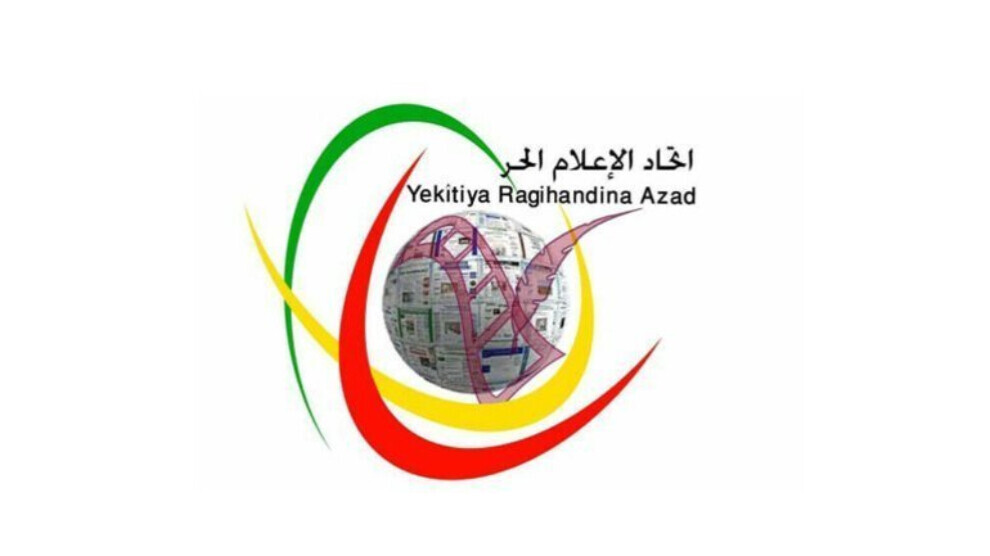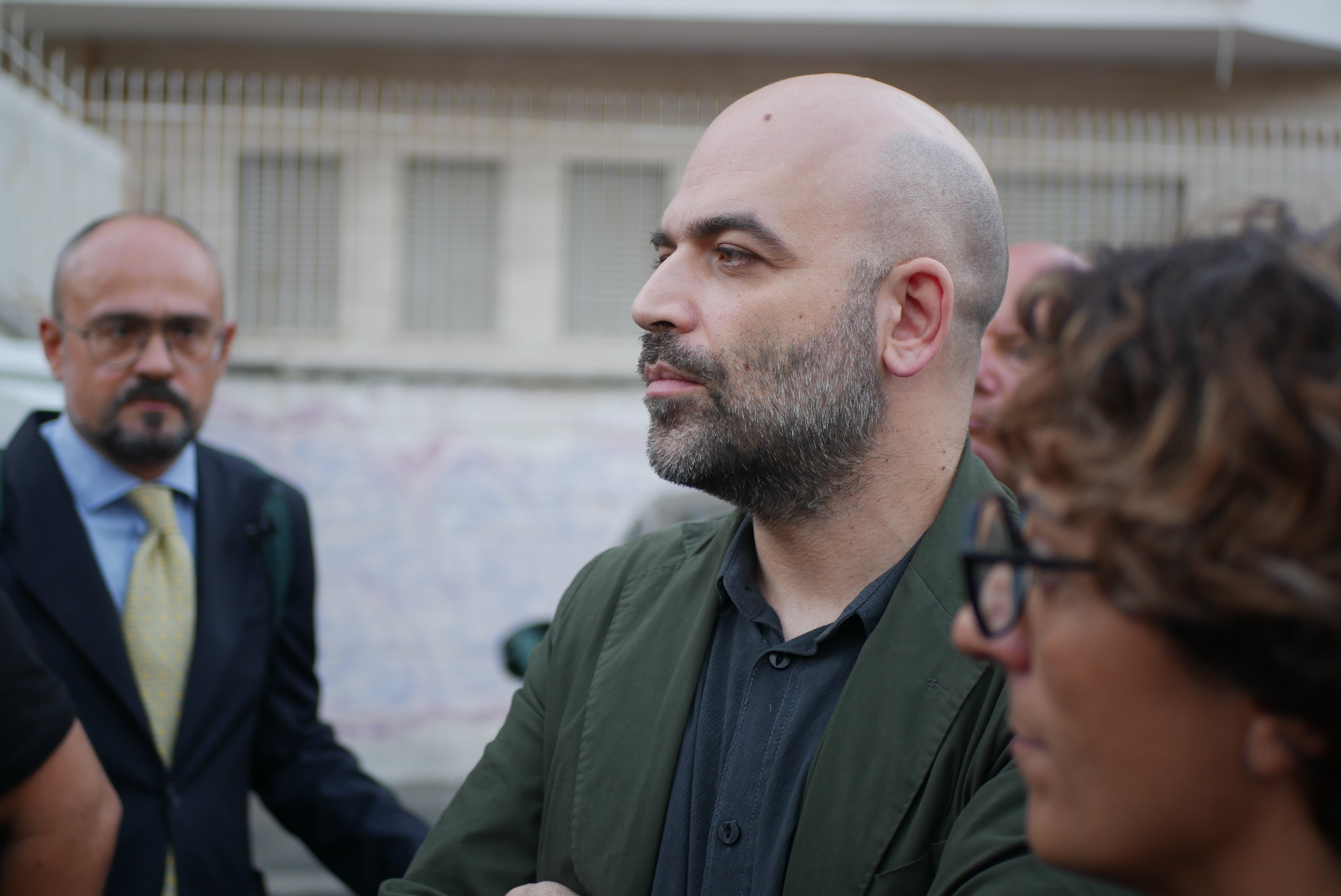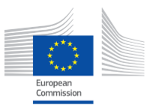International Media Freedom and Human Rights Organisations condemn the alarming surge in arrests of Kurdish journalists in Turkey.

ANF
NEWS DESK
Friday, 3 May 2024,
The International Press Institute (IPI), Media and Law Studies Association (MLSA) and 25 press freedom, freedom of expression and human rights organizations vehemently condemn the arrest of three Kurdish journalists last week. We call upon the authorities of Turkey to uphold their commitment to press freedom and release the detained journalists immediately. Turkey must abide by its Press Law, Constitution and ECHR, and refrain from targeting the Kurdish media and allow all journalists to carry out their professional role, which is vital to a functioning democracy, without fear of intimidation.
Three Journalists Arrested
On April 23, authorities of Turkey carried out a raid targeting Kurdish journalists in Istanbul, Ankara and Şanlıurfa. Authorities took nine people into custody, among whom were Mezopotamya Agency (MA) reporters Esra Solin Dal, Mehmet Aslan, former MA reporter Doğan Kaynak and journalist Erdoğan Alayumat. They were denied access to their lawyers for 24 hours. The following day, the detention period was extended by another 24 hours.
After giving their statements and appearing in court, Kaynak was released while Dal, Aslan, and Alayumat were arrested on April 27. They were accused of “membership in a terrorist organization”.
Despite this accusation, their case files do not contain any evidence to substantiate the claim, according to the Media and Law Studies Association (MLSA) Legal Unit who are part of the defense lawyers. During police questioning, they were interrogated solely about their journalistic work, sources, and activities on social media. The MLSA Legal Unit appealed the confidentiality order and additional restrictions imposed on their case.
Continued Harassment and Intimidation of Kurdish Journalists
Kurdish media outlets and journalists have increasingly been targeted by the government of Turkey in recent years. Last year, an alarming number of Kurdish journalists - nine in total - were jailed for up to seven months. In another instance, 11 Kurdish journalists were arrested immediately before the country's presidential and parliamentary elections in May 2023. Going further back, at least 25 Kurdish journalists were arrested and put in pre-trial detention in 2022 alone. The Mapping Media Freedom database records 43 alerts impacting 118 Kurdish journalists, media workers or outlets since 2022. The alerts are mostly instances of legal harassment that often result in arrest and imprisonment.
On the occasion of World Press Freedom Day, May 3, we renew our urgent call to the authorities of Turkey to cease the harassment and intimidation of Kurdish journalists. We urge them to ensure the safety and protection of all journalists in line with Turkey's obligations under its own Press Law and Constitution. We also call for a halt to the constant violation of the rights of freedom of expression and media freedom as protected under Article 10 of the European Convention on Human Rights.
Signed by:
International Press Institute (IPI)
Media and Law Studies Association (MLSA)
Committee to Protect Journalists (CPJ)
English PEN
European Centre for Press and Media Freedom (ECPMF)
Index on Censorship
Irish PEN/PEN na hÉireann
Kurdish PEN
OBC Transeuropa
PEN America
PEN Armãn
PEN Canada
PEN Catalan
PEN Croatia
PEN International
PEN Melbourne
PEN Netherlands
PEN Norway
PEN San Miguel
PEN Sydney
PEN Québec
South East Europe Media Organisation (SEEMO)
Swedish PEN
The World Association of Newspapers and News Publishers (WAN-IFRA)
Turkey Human Rights Litigation Support Project
Vietnamese PEN Abroad
Wales PEN Cymru

ANF
NEWS DESK
Friday, 3 May 2024,
Press freedom around the world is being threatened by the very people who should be its guarantors – political authorities. This is clear from the latest annual World Press Freedom Index produced by Reporters Without Borders (RSF). This finding is based on the fact that, of the five indicators used to compile the ranking, it is the political indicator that has fallen most, registering a global average fall of 7.6 points.
A growing number of governments and political authorities are not fulfilling their role as guarantors of the best possible environment for journalism and for the public's right to reliable, independent, and diverse news and information. RSF sees a worrying decline in support and respect for media autonomy and an increase in pressure from the state or other political actors.
“As more than half the world's population goes to the polls in 2024, RSF is warning of a worrying trend revealed by the 2024 World Press Freedom Index: a decline in the political indicator, one of five indicators detailed in the Index. States and other political forces are playing a decreasing role in protecting press freedom. This disempowerment sometimes goes hand in hand with more hostile actions that undermine the role of journalists, or even instrumentalise the media through campaigns of harassment or disinformation,” said Anne Bocandé, RSF editorial director.
At the international level, this year is notable for a clear lack of political will on the part of the international community to enforce the principles of protection of journalists, especially UN Security Council Resolution 2222. The war in Gaza has been marked by a record number of violations against journalists and the media since October 2023. More than 100 Palestinian reporters have been killed by the Israel Defence Forces, including at least 22 in the course of their work.
Occupied and under constant Israeli bombardment, Palestine is ranked 157th out of 180 countries and territories surveyed in the overall 2024 World Press Freedom Index, but it is ranked among the last 10 with regard to security for journalists.
While 2024 is the biggest election year in world history, 2023 also saw decisive elections, especially in Latin America, that were won by self-proclaimed predators of press freedom and media plurality, like Javier Milei in Argentina (down 26 to 66th), who shut down the country’s biggest news agency in a worrisome symbolic act.
Elections are often accompanied by violence against journalists, as in Nigeria (112th) and the Democratic Republic of Congo (123rd). The military juntas that seized power in coups in the Sahel, especially Niger (down 19 to 80th), Burkina Faso (down 28 to 86th) and Mali (down one to 114th), continue to tighten their grip on the media and obstruct journalists’ work. Recep Tayyip Erdogan’s reelection in Turkey is also a source of some concern: ranked 158th, the country’s placement in the Index continues to lose points in the Index.
RSF reported that many governments have stepped up their control over social media and the Internet, restricting access, blocking accounts, and suppressing messages carrying news and information. Journalists who say what they think on social media in Vietnam (174th) are almost systematically locked up. In China (172nd), in addition to detaining more journalists than any other country in the world, the government continues to exercise strict control over information channels, implementing censorship and surveillance policies to regulate online content and restrict the spread of information deemed to be sensitive or contrary to the party line.
The overall decline in the political indicator has also affected the trio at the top of the World Press Freedom Index. Norway, still in first place, has seen a fall in its political score, and Ireland (8th), where politicians have subjected media outlets to judicial intimidation, has ceded its leading position in the European Union to Denmark (2nd), followed by Sweden (3rd).
Regarding the political context in Turkey, RSF stated that: “The 2023 elections, won by Recep Tayyip Erdogan, were marked by the arrests of dozens of Kurdish journalists. However, neither the almost systematic online censorship, the arbitrary lawsuits against critical media outlets nor the exploitation of the judicial system have allowed, so far, the “hyper-president” to recover his popularity ratings, as he continues to be embroiled in a major case involving corruption and political clientelism.”
“Discriminatory practices against critical journalists and media outlets, such as stripping them of press passes, are commonplace. Judges who do the government’s bidding try to limit democratic debate by censoring online articles tackling corruption and other sensitive topics. In this difficult environment, some journalists have nonetheless tried to remain faithful to their mission to report the news with complete independence and are demanding recognition of a “media ombudsman”. New legislation on “disinformation” constitutes yet another weapon in the government’s oppressive arsenal.”
RSF noted that members and leaders of the ultranationalist MHP party, an ally of President Erdogan's AKP, do not hesitate to threaten journalists who dare to draw attention to embarrassing issues: “Cases of violence against journalists during the 2019 elections resulted in lenient sentences or endless trials, highlighting the culture of impunity in the country. Journalists daring to cover attacks on secularism, the impact of religious groups (Tarikat) or regional jihadist organisations are increasingly exposed to threats.”

ANF
NEWS DESK
Friday, 3 May 2024, 14:21
The Free Press Association (YRA) made a written statement on the occasion of 3 May World Press Freedom Day.
The statement called on the United Nations and international institutions and organisations to "act in accordance with international agreements and standards and fulfill your duty".
The statement emphasised that violations of press and journalism are increasing worldwide despite the resolutions of the United Nations, and that Turkey is among the states that exert pressure on journalists the most. YRA highlighted the cases of attacks, repression and arrests against journalists, especially in Northern Kurdistan and Turkey.
The statement pointed to the attacks of the occupying Turkish state against journalists in Northern and Eastern Syria and recalled the killing of television employee Najimedin Fêsel Hajî Sînan and the serious injury of reporter Delila Egid in an attack on Jin TV's vehicle. The statement emphasised that the occupying Turkish state fears the free press and targets journalists.
The statement also denounced the repression against journalists in Southern Kurdistan and noted that YRA member and Roj News Editor Silêman Ehmed has been detained for more than 6 months and his fate is still unknown.
Condemning the oppression and practices against journalists around the world, the statement included the following call upon the United Nations and international institutions and organisations: "Do not remain indifferent to the pressures and practices against journalists in Northern and Eastern Syria and around the world, act in accordance with international agreements and standards, and fulfil your duty."






















 This publication was produced within the
This publication was produced within the